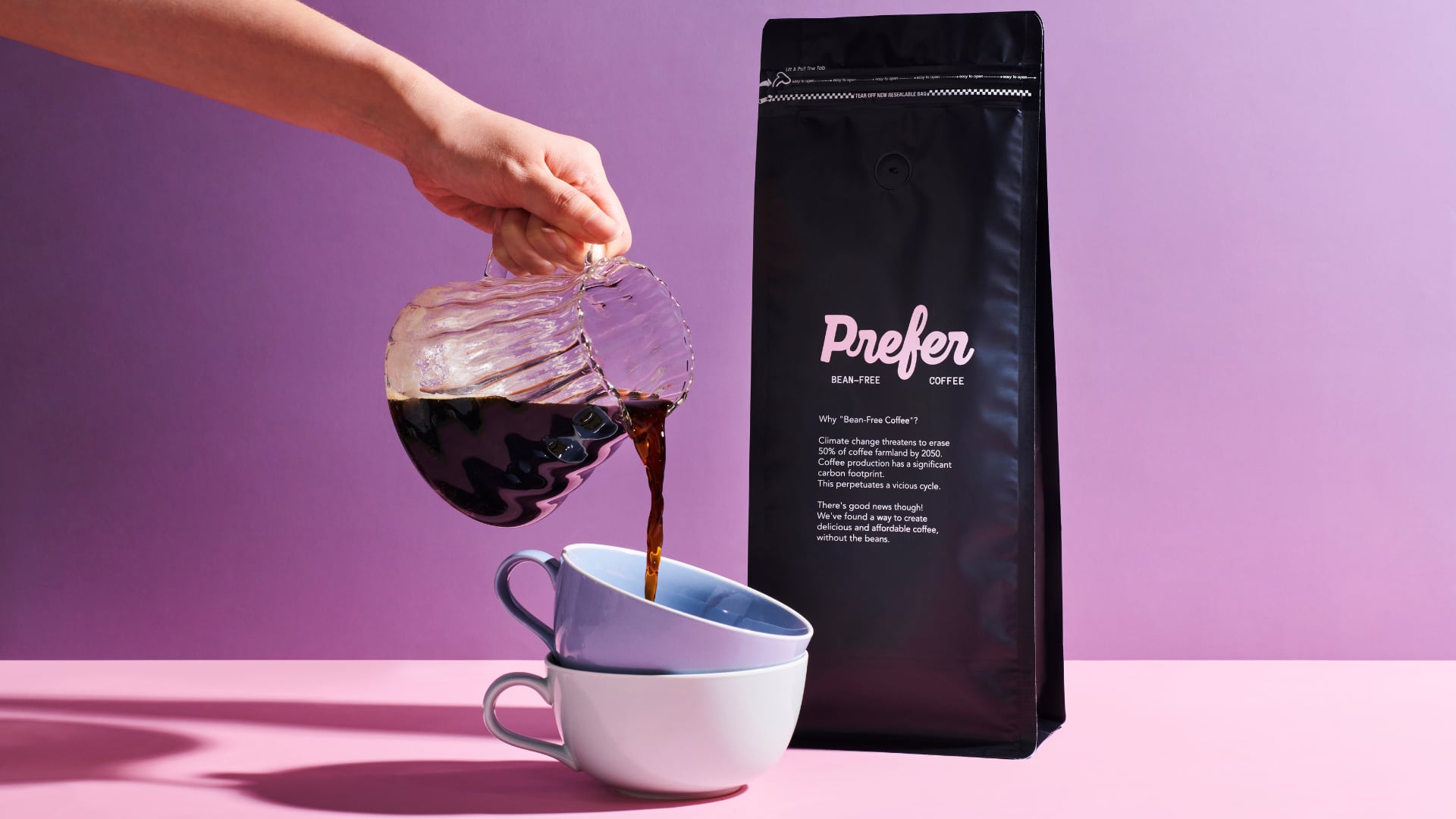Made from food manufacturing byproducts such as rice and soy, Prefer’s bean-free coffee flavours are developed using a proprietary fermentation and roasting process.
As part of its Asia Pacific expansion plans, Prefer has partnered Ajinomoto Thailand and The Coffee Ferm – an Australian FMCG company – to tap their strong distribution networks.
“We chose Ajinomoto and The Coffee Ferm because our technology complements their strong distribution networks, enabling lower-cost, lower-carbon products for their customers,” said Prefer CEO Jake Berber.
“With Ajinomoto, we are co-developing sustainable coffee beverages that align with their ‘Eat Well Live Well’ mission, building on their leading position in Thailand’s coffee market.
“With The Coffee Ferm, the model is licensing: they will manufacture and distribute Prefer coffee in Australia and New Zealand, leveraging their track record and Golden Bean network.”
He added that Prefer’s soluble coffee powder is up to two times more affordable than current arabica market prices and emits eight times less CO₂. These claims are supported by publicly available coffee commodity data and a third-party life cycle analysis completed in 2025, said Berber.
While Prefer is seeing global interest in cost-effective and sustainable ingredients, it sees Asia as the most promising region for sustainable crop alternatives, driven by rising demand and market scale.

Asia’s demand for sustainable alternatives
Berber explained that Asia’s large and rapidly growing coffee and cocoa market makes it the most promising region for Prefer’s next phase of expansion.
“Asia is where we see the most potential in the near term. Coffee and cocoa consumption here is already massive and growing quickly, especially at the mass market level. That makes affordable ingredients like ours especially relevant. That said, we are receiving strong inbound interest from the US and EU, where we are open to conversations regarding licensing our IP,” said Berber.
The firm has also launched its cocoa-free cocoa powder, which has potential to offer resilience and affordability to brands looking for sustainable indulgence.
Berber said its cocoa-free cocoa powder could deliver greater cost savings and carbon reductions than its bean-free coffee, due to volatility in global cocoa supply and pricing.
Beyond coffee and cocoa, the firm is exploring other climate-vulnerable categories.
“We see opportunity in climate-vulnerable and resource-intensive flavours such as vanilla, hazelnut, and citrus. These categories face supply and cost challenges that our fermentation platform is well-suited to address. By unlocking flavour from underused raw materials, we can provide affordable, stable alternatives while reducing environmental impact,” Berber said.

The science behind the flavours
Prefer’s process of fermentation and roasting recreates the familiar flavour profile of coffee and cocoa.
“Our fermentation technology builds the same chemical precursors that are present in coffee and cocoa, and roasting unlocks them into the same aroma volatiles,” shared Berber.
“To achieve this, we control the selection of microbes, the substrates we use, and fermentation conditions such as time and temperature. We then apply precise roast profiles to bring out the desired flavours, which ensures sensory equivalence to traditional products,” he explained.
Prefer launched its bean-free coffee in Singapore in 2024. The positive reception revealed that consumers are willing to pay a premium for sustainable products that do not compromise on taste.
“Our Singapore experience showed us that consumers are really excited about what we’re working on and will pull out their wallets for it. We also learned that consumers respond best when affordability and taste come together, with sustainability being a nice-to-have bonus. These lessons shape how we partner with larger companies internationally,” said Berber.
Prefer recently commercialised its coffee products through foodservice channels, collaborating with Melvados, a Singaporean food business.
The firm announced its latest Asia Pacific expansion plans after raising an oversubscribed US$4.2M Pre-A funding round in August.
One of its lead investors, At One Ventures, highlighted the urgency of reducing the food system’s agricultural footprint.
“Our investment in Prefer reflects both the urgency of reducing our food system’s agricultural footprint and our conviction in this team’s ability to deliver a sensory-equivalent experience with radically lower environmental impact, all while driving cost savings for customers,” said Helen Lin, partner of At One Ventures and Prefer board member.
“By reducing the need for commodity coffee and cacao farming, Prefer is enabling a future where taste and climate alignment can go hand in hand.”





